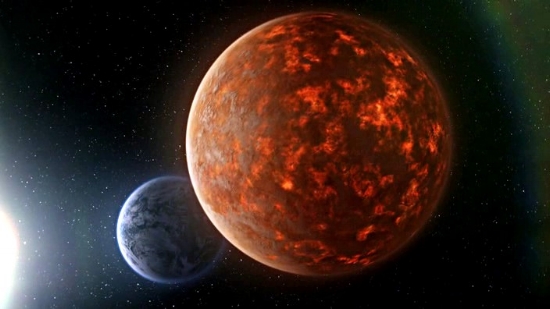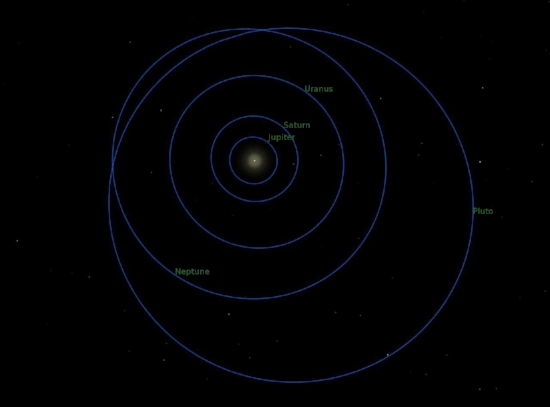How we know there is no planet Nibiru, planet X, or any other preconceived planet coming to destroy us
Credit: Gil Carlson
“World ends on Sunday, November 19: Planet Nibiru Earthquake Apocalypse Wipes out Civilization, Theorists Warn”
Needless to say, the world didn’t end on November 19th, 2017. Nor did it on October 15th, 2017, or between September 20 and 23, 2017: the two previous doomsday predictions made by Christian numerologist and planet Nibiru conspiracy theorist David Meade.
So what gives? Is the date that Nibiru will actually impact or tidally disrupt the Earth sometime in 2018? Or is it actually never?
It’s never. Never is the answer.
Let’s start with the most obvious reason.
If there was a planet set to impact the Earth in less than a year, it would be visible with the naked eye
Just think of Halley’s Comet, the icy visitor who sweeps through the inner Solar System every 75 years or so. Halley’s Comet has one of the most eccentric orbits in the Solar System, and travels just a smidgen slower than the Solar System escape velocity. If Halley’s Comet were as large as a planet, you could see it with the naked eye for about a year as it moves from Saturn's orbit towards Earth.
Credit: Astronomy Trek
So if you have any friends who like to believe these sorts of things, just ask them to kindly point to the Earth-destroying planet in the sky. And make sure they don’t point to something that twinkles.
Gravitational interactions between planets leave a mark
Pluto’s orbit is slightly eccentric because Neptune and other Kuiper belt objects give it a gravitational nudge every time they get close. The eight planets, on the other hand, all have nearly circular orbits, suggesting that nothing as massive as a planet has come near them in millions of years. This rules out the existence of planet Nibiru, which apparently sweeps into our inner Solar System every 3,600 years.
need I say more?
If you aren’t convinced by this point then you’re clearly the type of person who will believe in something despite overwhelming evidence against it.
I mean, I get it. It's fun to play the "what if" game. And without knowing the science behind something it can even be tempting to believe a conspiracy theory like this one. But before you start stocking up your doomsday cellar, try to approach these claims with a healthy bit of skepticism. "Who is making these claims? Have the made false claims in the past?" "What are their main pieces of evidence?" "Is there counter-evidence to refute their claims?"
You can also reduce your likelihood of being duped by staying up-to-date with the latest in astronomy and planetary science. Elizabeth Tasker recently wrote an engaging and informative book that'll tell you all you need to know about planet formation and exoplanets. And Phil Plait is a consistent science blogger who does an excellent job breaking down complex topics in astronomy.
"Okay fine, but what about asteroids?"
Yeah, those are a genuine threat. But, one thing at a time people.


